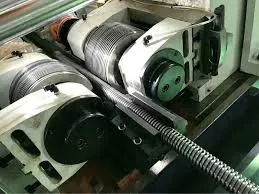
-
 Afrikaans
Afrikaans -
 Albanian
Albanian -
 Amharic
Amharic -
 Arabic
Arabic -
 Armenian
Armenian -
 Azerbaijani
Azerbaijani -
 Basque
Basque -
 Belarusian
Belarusian -
 Bengali
Bengali -
 Bosnian
Bosnian -
 Bulgarian
Bulgarian -
 Catalan
Catalan -
 Cebuano
Cebuano -
 Corsican
Corsican -
 Croatian
Croatian -
 Czech
Czech -
 Danish
Danish -
 Dutch
Dutch -
 English
English -
 Esperanto
Esperanto -
 Estonian
Estonian -
 Finnish
Finnish -
 French
French -
 Frisian
Frisian -
 Galician
Galician -
 Georgian
Georgian -
 German
German -
 Greek
Greek -
 Gujarati
Gujarati -
 Haitian Creole
Haitian Creole -
 hausa
hausa -
 hawaiian
hawaiian -
 Hebrew
Hebrew -
 Hindi
Hindi -
 Miao
Miao -
 Hungarian
Hungarian -
 Icelandic
Icelandic -
 igbo
igbo -
 Indonesian
Indonesian -
 irish
irish -
 Italian
Italian -
 Japanese
Japanese -
 Javanese
Javanese -
 Kannada
Kannada -
 kazakh
kazakh -
 Khmer
Khmer -
 Rwandese
Rwandese -
 Korean
Korean -
 Kurdish
Kurdish -
 Kyrgyz
Kyrgyz -
 Lao
Lao -
 Latin
Latin -
 Latvian
Latvian -
 Lithuanian
Lithuanian -
 Luxembourgish
Luxembourgish -
 Macedonian
Macedonian -
 Malgashi
Malgashi -
 Malay
Malay -
 Malayalam
Malayalam -
 Maltese
Maltese -
 Maori
Maori -
 Marathi
Marathi -
 Mongolian
Mongolian -
 Myanmar
Myanmar -
 Nepali
Nepali -
 Norwegian
Norwegian -
 Norwegian
Norwegian -
 Occitan
Occitan -
 Pashto
Pashto -
 Persian
Persian -
 Polish
Polish -
 Portuguese
Portuguese -
 Punjabi
Punjabi -
 Romanian
Romanian -
 Russian
Russian -
 Samoan
Samoan -
 Scottish Gaelic
Scottish Gaelic -
 Serbian
Serbian -
 Sesotho
Sesotho -
 Shona
Shona -
 Sindhi
Sindhi -
 Sinhala
Sinhala -
 Slovak
Slovak -
 Slovenian
Slovenian -
 Somali
Somali -
 Spanish
Spanish -
 Sundanese
Sundanese -
 Swahili
Swahili -
 Swedish
Swedish -
 Tagalog
Tagalog -
 Tajik
Tajik -
 Tamil
Tamil -
 Tatar
Tatar -
 Telugu
Telugu -
 Thai
Thai -
 Turkish
Turkish -
 Turkmen
Turkmen -
 Ukrainian
Ukrainian -
 Urdu
Urdu -
 Uighur
Uighur -
 Uzbek
Uzbek -
 Vietnamese
Vietnamese -
 Welsh
Welsh -
 Bantu
Bantu -
 Yiddish
Yiddish -
 Yoruba
Yoruba -
 Zulu
Zulu
cnc thread rolling machine service
The Importance of CNC Thread Rolling Machine Service
CNC thread rolling machines have revolutionized the manufacturing landscape, providing precise and efficient methods for producing threaded parts and components. As industries increasingly rely on these machines for high-volume production, maintaining them through regular service becomes essential to ensure their longevity and optimal performance. This article delves into the significance of CNC thread rolling machine service, highlighting key benefits and best practices.
Understanding CNC Thread Rolling Machines
CNC (Computer Numerical Control) thread rolling machines use a process called cold forming to create threads on metal workpieces. This method is preferred over traditional machining techniques because it not only improves material properties but also enhances production speed and efficiency. Thread rolling can produce high-quality threads with minimal waste, making it an economically favorable option for manufacturers.
The Necessity of Regular Service
Just like any other complex machinery, CNC thread rolling machines require regular maintenance to function effectively. Without proper service, the machines can experience wear and tear, resulting in decreased precision and efficiency. Common issues, such as misalignment, degradation of components, or software malfunctions, can lead to costly downtimes and repairs if not addressed promptly.
Regular service checks help identify potential problems before they escalate. This proactive approach not only ensures smooth operations but also extends the machine's lifespan, ultimately leading to significant cost savings for the manufacturer.
Benefits of Professional Service
1. Increased Productivity A well-maintained CNC thread rolling machine operates more efficiently, reducing the risk of unexpected breakdowns that can halt production. Scheduled maintenance minimizes downtime and keeps the production line running smoothly.
cnc thread rolling machine service

2. Precision and Quality Thread rolling machines are known for their ability to produce high-quality threads. Regular service ensures that the machines remain calibrated and aligned, resulting in consistent output quality and reducing the likelihood of defects.
3. Cost Efficiency While some manufacturers may consider service as an added expense, in reality, it can save money in the long run. Preventive maintenance reduces the need for extensive repairs, minimizes material waste, and optimizes the overall manufacturing process.
4. Expert Insights Professional service technicians bring a wealth of knowledge and experience, allowing them to identify potential issues that may not be immediately apparent. Their expertise in troubleshooting and repairing CNC machines can enhance operational efficiency.
Best Practices for CNC Thread Rolling Machine Service
To maximize the benefits of CNC thread rolling machine service, manufacturers should adopt certain best practices
- Schedule Regular Maintenance Create a maintenance schedule that aligns with the machine's usage and production cycles. This proactive approach can prevent extended downtimes.
- Keep a Maintenance Log Document all service and maintenance activities. This log provides valuable insights into the machine's performance and upkeep needs.
- Train Staff Ensure that operators are trained in routine checks and maintenance protocols. Empowering staff to identify early signs of wear can be crucial for timely interventions.
In conclusion, CNC thread rolling machine service plays a pivotal role in maintaining the efficiency and longevity of these vital manufacturing tools. By prioritizing regular maintenance and professional servicing, businesses can enhance productivity, maintain quality, and achieve significant cost savings, thus supporting their overall operational excellence in a competitive market.
